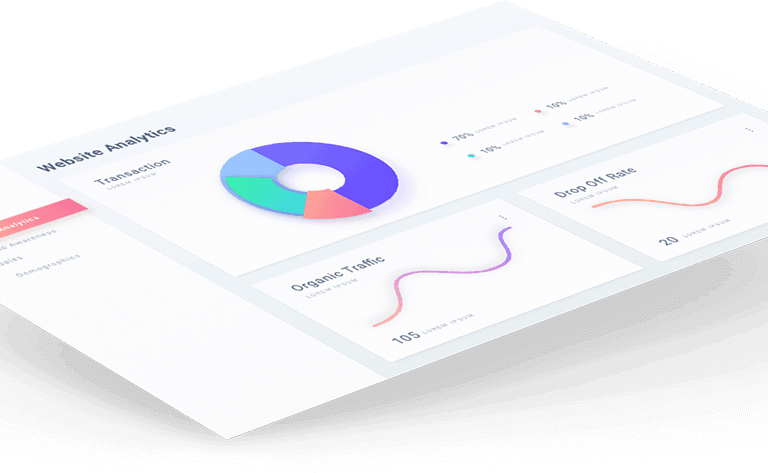Your business fleet is obviously important to the smooth running of your business. But if you’re not running your fleet efficiently and you’re using more fuel than is necessary, that fleet can quickly become a financial drain on the business, and that doesn’t need to be the case. There are lots of ways to reduce the fuel usage of your fleet and that’s what we’re going to discuss today.
With businesses increasingly keen to run efficiently and to be more conscious of their impact on the environment, now is as good a time as any to start making changes that’ll help you use less fuel. It’ll benefit your business massively and the money saved can be put towards better and more impactful spending.
.
Here’s how your business should go about using less fuel for its fleet.
“There are lots of ways to reduce your business fleet’s fuel usage, so keep in mind all of the things mentioned above. But there’s no doubting the fact that implementing a high-quality GPS fleet tracking system is the best way to go. It’ll enable a vast array of fuel-saving options and possibilities.”
Stick to the Speed Limit
There are a couple of reasons why speeding can be costly for your business. First of all, if your drivers are breaking the speed limit, it’s only going to be a matter of time before the speeding fines start pouring in, and that’s obviously not what you want to happen. Stick to the speed limits and you won’t have to deal with that cost at all, which is obviously how it should be.
It’s not just about avoiding speeding tickets though. You will also use less fuel when your drivers stick to the speed limit. Vehicles use more fuel when they drive faster; it’s as simple as that. So, by reducing speeds and sticking to the limit set on each road, your drivers will drive more efficiently and your business will be able to spend less money on fuel for its fleet.
.
Don’t Keep Vehicles Standing Idle
If the engine is running, vehicles use fuel even when they’re not moving. That’s an issue you should aim to eliminate because doing so will enable you to save money consistently. Drivers might pull up to check something or to carry out a quick delivery and leave the engine running. But all that does is waste fuel in a completely unhelpful and unproductive way.
You should tell your drivers to only leave the vehicle running if you know it’ll be idling for less than a minute. If there’s a chance that it’ll be standing idle with the engine running for longer than that, they should turn the engine off. It’s a simple change and it’ll be no problem for your drivers to carry it out, but it will certainly make a big difference to how much fuel you use.
.
Look After Your Tyres
When your vehicle has less friction with the road beneath it, it uses less fuel over the course of a journey. And the best way to ensure your vehicles have low friction with the road is to look after your fleet’s tyres and keep them properly inflated at all times. Tyres that are fully inflated have less friction with the road and that will result in more efficient journeys every day of the working week.
Many gas stations offer you the opportunities to inflate your tyres, and you should aim to make it a regular part of your daily procedures to check the tyre pressure of your fleet. Doing so will enable you to know exactly when it’s time to increase the air pressure in the tyres and reduce that friction level. It’s another small change that can have a big impact.
.

.
Stay on Top of Vehicle Maintenance
Vehicles that are properly looked after and regularly maintained are much less likely to experience efficiency problems. It’s important that you’re able to look after your vehicles because you don’t want problems to arise. Once problems start to overrun your vehicles, efficiency levels will plummet pretty fast and you’ll pay the price for that.
Even simple things like cleaner oil filters will help your vehicles to do more miles to the gallon, allowing you to save significant amounts of money on fuel. Ensuring the engine is correctly tuned is another important example of a maintenance procedure that can have a considerable impact on the fuel efficiency of your fleet of vehicles. It’s also vital to ensure you’re using the oil that’s right for your vehicles.
.
Try to Brake Less
Braking hard leads to more accelerating as you aim to regain speed. It’s something that’s simply not necessary and it has a big impact on the amount of fuel you use. If your drivers were to take a new approach and instead tried to keep a safe distance between their car and the car in front, they wouldn’t have to brake as often and they subsequently wouldn’t have to accelerate as hard either.
It’s about changing your drivers’ approach to driving. Doing so will help them to operate more efficiently, but they’ll have to be reminded of it regularly because driving close to the vehicle in front is the norm for many drivers and it’s simply what they’re used to doing. Most people don’t realise that it’s an inefficient way of driving until they’re told.
.
Reduce Air Con Usage
Another thing that’s easy to forget or not even realise is that using the air conditioner in the car uses a lot of fuel. It doesn’t have any impact on the movement of the vehicle but that doesn’t mean it’s not using power and fuel in order to function. If you want to save fuel, one of the most effective changes you can make is ensuring your drivers use the air con a little less.
Of course, this is about finding the right balance because sometimes it’s necessary to use the air con and there’s nothing much that can be done about it. But there are alternatives, such as letting air in through the window, which doesn’t cost any money at all. Try to use the aircon as sparingly as possible if you want to use less fuel.
.
Put More Time and Effort Into Finding Routes
Choosing the best route is another good way to use less fuel. If you’re taking longer and lengthier routes to your destinations, you’re obviously going to use more fuel. By planning out routes in advance and putting time into finding routes that offer maximum efficiency to your vehicles, you’ll be able to save a lot of fuel and ensure your time is maximised too.
Finding efficient routes is not just about finding the shortest route either. Sometimes, a route can be shorter while still representing a less efficient route to take than one of the alternatives. For example, if there’s a route with lots of traffic lights, there’ll be more stopping and starting, which is very inefficient and wastes fuel. Those kinds of routes are the ones you’ll generally want to avoid.
.
Use a Fuel Card Integration System
Using fuel cards makes it easier for your drivers to pay for fuel. The card simply has to be presented and then the amount is charged to your company. It’s an efficient way to pay for fuel and can also save time when your drivers are on the road and want to be able to fill up quickly without worrying about complicated and unnecessary payment methods.
Fuel cards are also useful because they allow businesses to avoid incorrect use of company money and things like that. Fuel card misuse is possible, although less likely, it’s possible to eliminate that problem by using a good GPS fleet tracking system that can stay on top of these things.
.
How This Can All be Brought Together by Implementing a GPS Tracking System
GPS tracking system lets you stay on top of how your fleet is being used and what your drivers are doing. All drivers make mistakes that lead to inefficiency, and it’s much easier to tackle those kinds of problems when you know when and why they’re occurring. That’s what good GPS fleet tracking systems allow businesses to do. It’s something that you should look into.
It can make staying on top of maintenance and spot problems with vehicles much easier. That obviously matters because vehicles that have problems become less efficient and then they use more fuel. A GPS system will also enable you to stay on top of tyre health and to keep them performing as they should on the road.
You’ll spot excessive idling, be able to manage the routes that your drivers are taking when they’re out doing jobs and you can keep an eye on speeds and reduce them. All in all, it’s easy to ensure your fleet and drivers are performing efficiently when you have a good GPS fleet tracking system in place, so be sure to invest in one if you haven’t done so already.
.





